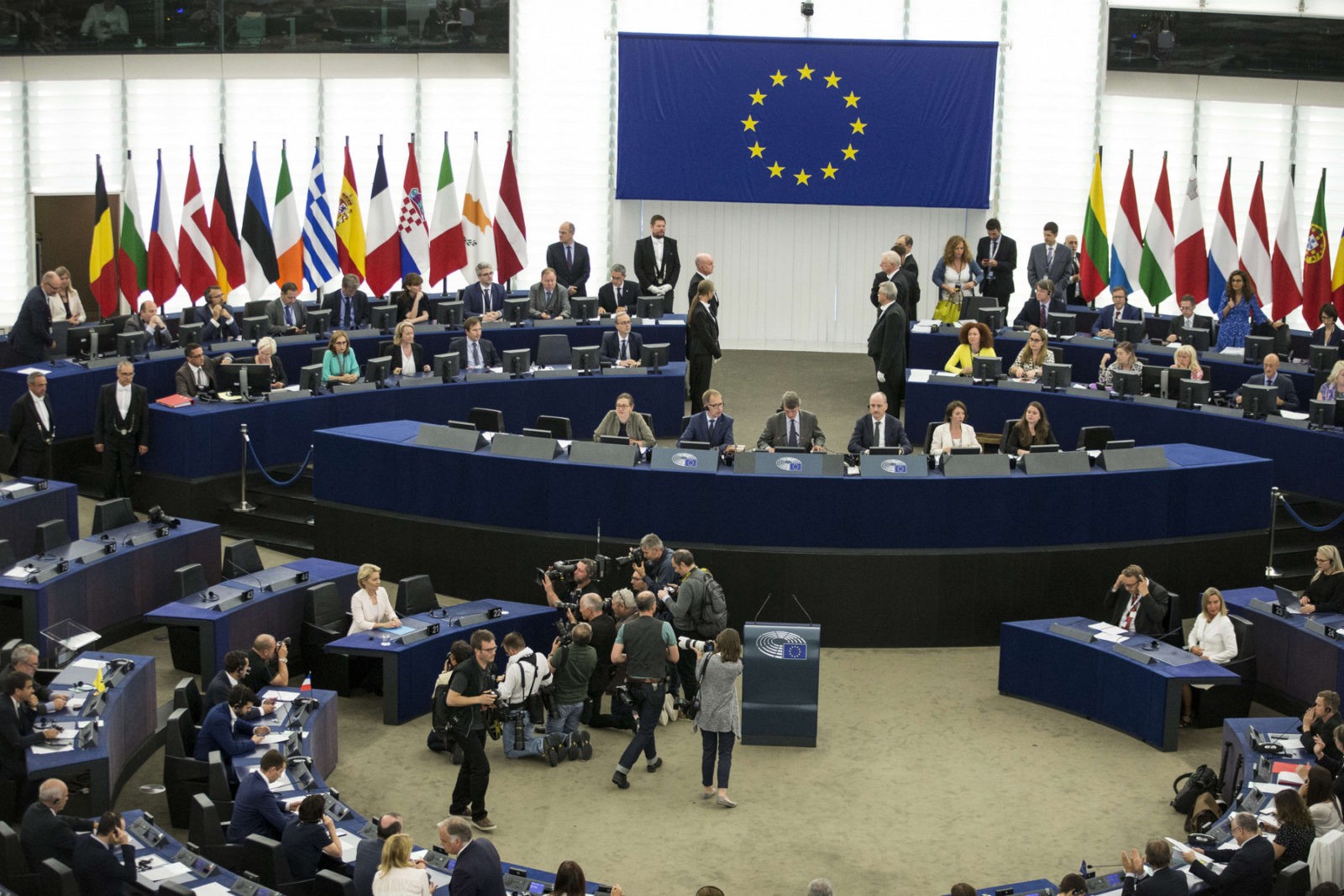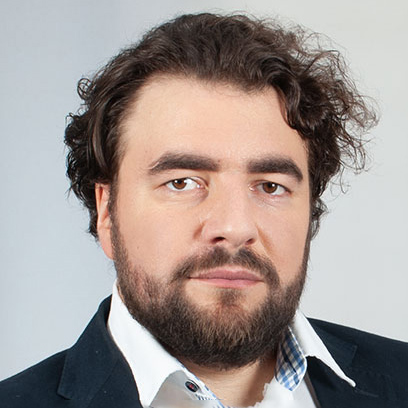Western Europe has regained its monopoly on the European Union’s leadership. Ursula von der Leyen, recently elected as the president of the European Commission, hopes to parley with the Kremlin from a position of strength. Will the new leadership of the European Union ratchet up the pressure on Moscow, or offer a conciliatory hand?
Von der Leyen does not have the strongest of hands yet. She was elected as the European Commission head by a rather slight margin. She received only nine votes more than the required minimum of at least 374 MEPs out of 747; 22 people abstained, while 327 European deputies voted against the German Minister of Defense for head of the EC. This was a less than emphatic victory.
So the new EC leadership has fairly low legitimacy. On top of this, it enjoys only weak support from most national governments. The reason? Von der Leyen is one of many new leaders in the European ‘bureaucratic collective’ who were compromise choices. The leaders of EU member states only approved these candidates’ nominations at the last moment. They did so when it became clear their own favorites would fall short. In fact, the German Defense Minister was not even listed among the possible new EC presidents at first. Her name did not turn up in the press, at least. However, the Visegrad Four (Hungary, Poland, Slovakia, and the Czech Republic) and Italy (whose current populist government is in constant conflict with Brussels, Berlin, and Paris) blocked the Dutch candidate, Frans Timmermans, who had earlier spoken harshly of Eurosceptics. As head of the European Commission, Timmermans probably would have pursued a policy of economic pressure on dissenters. He would have sought a “two-track Europe” where newer EU members would be outsiders.
The compromise became the conservative mother of seven, von der Leyen. The first female president of the European Commission, a progressive first, will thus be its most conservative head for at least two decades.
Compromise and Compensation
In exchange for a German Christian Democrat as the head of the EU’s executive branch, EU leaders had to compensate for her conservatism with leftists in other posts. After a lengthy debate, the Italian Social Democrat David-Maria Sassoli became speaker of the European Parliament. His election served to establish a balance between ‘left’ and ‘right’ centrists. It also sent a strong message to the current Italian leadership, which clashes with Sassoli’s party.
Another counterweight to von der Leyen’s conservative leanings should be the Spanish Foreign Minister Josep Borrell. He represents the left-wing Socialist Workers’ Party and former speaker of the European Parliament. Borrell is expected to become High Commissioner for Foreign and Security Policy. That would make him the de facto head of the EU’s Foreign Affairs Council. Spanish socialists after all received 20 out of 54 places in their country’s quota. That result has made them the largest national group in the Social Democratic faction.
The final key position that was “allotted” at the same time as the future head of the EC was that of president of the European Council – a collective executive body comprising the leaders of EU member states. Before a representative of the “east” of the European Union, the former Polish Prime Minister Donald Tusk, held the post. Yet his successor was not chosen from among the Visegrad Four or other “young” EU member-states’ candidates. Dissenters from the “east” of Berlin and Paris were apparently punished for their obstinacy in nominating candidates to the European Commission presidency. As a result, the post of head of the European Council was given to Charles Michel, a liberal former Belgian prime minister,. For several years Michel managed to find a balance between the interests of Flemish nationalists and French-speaking parties. Both have long been attempting to tear his country into at least two parts, if not more.
Sights on the Kremlin
If there is one thing that unites the new leaders of the European Union, it is their attitude toward Russia, which can be described at the very least as wary. The current leaders have come into power at a difficult time, when the less-than-friendly Donald Trump is pushing the EU from the West, and Vladimir Putin is pressing in from the East – with the far more economically powerful and potentially dangerous China looming beyond.
Recently, the Russian delegation’s right to vote in the Parliamentary Assembly of the Council of Europe has been returned. More and more leaders of many EU countries are suggesting to consider revising the sanctions on Russia. Many feared the new leadership of the European Union would be drawn from the so-called “Putinverstehere” (‘Putin understanders’). These figures are defined by their determination to restore friendship and cooperation with the Kremlin. Many commentators tried to see the new appointments from this perspective, but in reality, things did not turn out too well for Russia.
The most moderate of the crew is perhaps the former Belgian prime minister. On the whole, Michel has not publicly advocated either in the Kremlin’s interest nor against it. But this is understandable; the Belgian premier is used to skirting contentious issues. He is unlikely to get into Twitter arguments with Vladimir Putin about the fate of liberalism, as Donald Tusk has recently done. But Charles Michel is also unlikely to call for concessions to the Kremlin, as he is not known to have relations with Russian lobbyists.
As for the new speaker of the European Parliament, David-Maria Sassoli, he found himself compelled to ‘show his colors’ in debates during his campaign for the Chair. Although Sassoli’s party used to be fully loyal to Russia, he himself said that the decision to impose sanctions on the Kremlin was legal and that he sees no reason to revoke them. This, of course, does not mean that this is exactly what his policy will be as speaker of the EP; politicians tend to forget their election promises. But in general, he is unlikely to deviate from the narrative that since it was the member-states of the EU that introduced sanctions, it is up to them to decide where to go from there.
In the media, the former head of the Spanish Foreign Ministry and the soon-to-be top European diplomat, Josep Borrell, was accused of being too soft on Moscow. But here, it is worth treating the interests of Spain, where Russian citizens are investing billions of euros, separately from the personal opinions of the new EU High Commissioner for foreign policy. As Speaker of the European Parliament, Borrell called for a transition in the EU’s relations with the Kremlin from a policy of pragmatism to one of morality and protection of human rights after the first Maidan in Ukraine, acknowledging the threat Moscow presents to the EU. He essentially repeated the same point in 2019, calling Russia an “old adversary” of the European Union. With such views he is unlikely to become a more welcome sight for the Kremlin than his predecessor, Federica Mogherini. Incidentally, Borrell will also be leading the EU group designed to fight Kremlin propaganda. Mogherini was often accused of not wanting to develop this type of tool. So it might be possible to infer Borrell’s real foreign policy orientation from his level of engagement with these “anti-propaganda” efforts. In any case, it is far from pro-Russian. Especially if the protection of human rights is once again pushed to the forefront of Europe’s “eastern” policy.
Still, the harshest on Russia out of the new faces is von der Leyen. Even as Defense Minister in Germany, she was opposed to any concessions to the Kremlin. Well, on the eve of the vote in the European Parliament, she declared that having a dialogue with Russia is essential, but that to do that you have to take a strong position and not make concessions. This is one stance she will likely keep to after the election.
Her proposal is quite clear. And it may involve the introduction of new sanctions, for example, for blocking access to Ukrainian ships in the Azov Sea. After Russian border guards captured Ukrainian sailors and ships, von der Leyen was among the number of German politicians advocating for harsh retaliatory measures. She even called for a ban on Russian ships entering European ports.
This means there is no point in waiting for the position of the European Commission and the EU overall to soften with regard to the Kremlin. On the other hand, it is also unlikely to toughen up either. It is one thing to talk about the need to take a “strong position”, but it is quite another to actually have the ability to negotiate from a position of strength. Let’s recall that the defining characteristics of the current leadership of the European Commission are its low legitimacy, compromising nature, and, therefore, its inevitable weakness.
Considering this, von der Leyen is unlikely to be able to make any controversial decisions soon, including beefing up current sanctions on the Kremlin or imposing new ones. Any of her proposals will face resistance from Italy, the Visegrad Four, “leftists” among the EU leaders following their parties’ line. Perhaps also even from her native Germany, which is pursuing a very cautious policy toward Russia. So for the next year at least, if not for the whole term of her mandate, von der Leyen will be busy with internal European problem, and not the Kremlin – provided, of course, that Russia does not attract Europeans’ preoccupied attention by getting involved in some new adventure near the EU’s borders.










